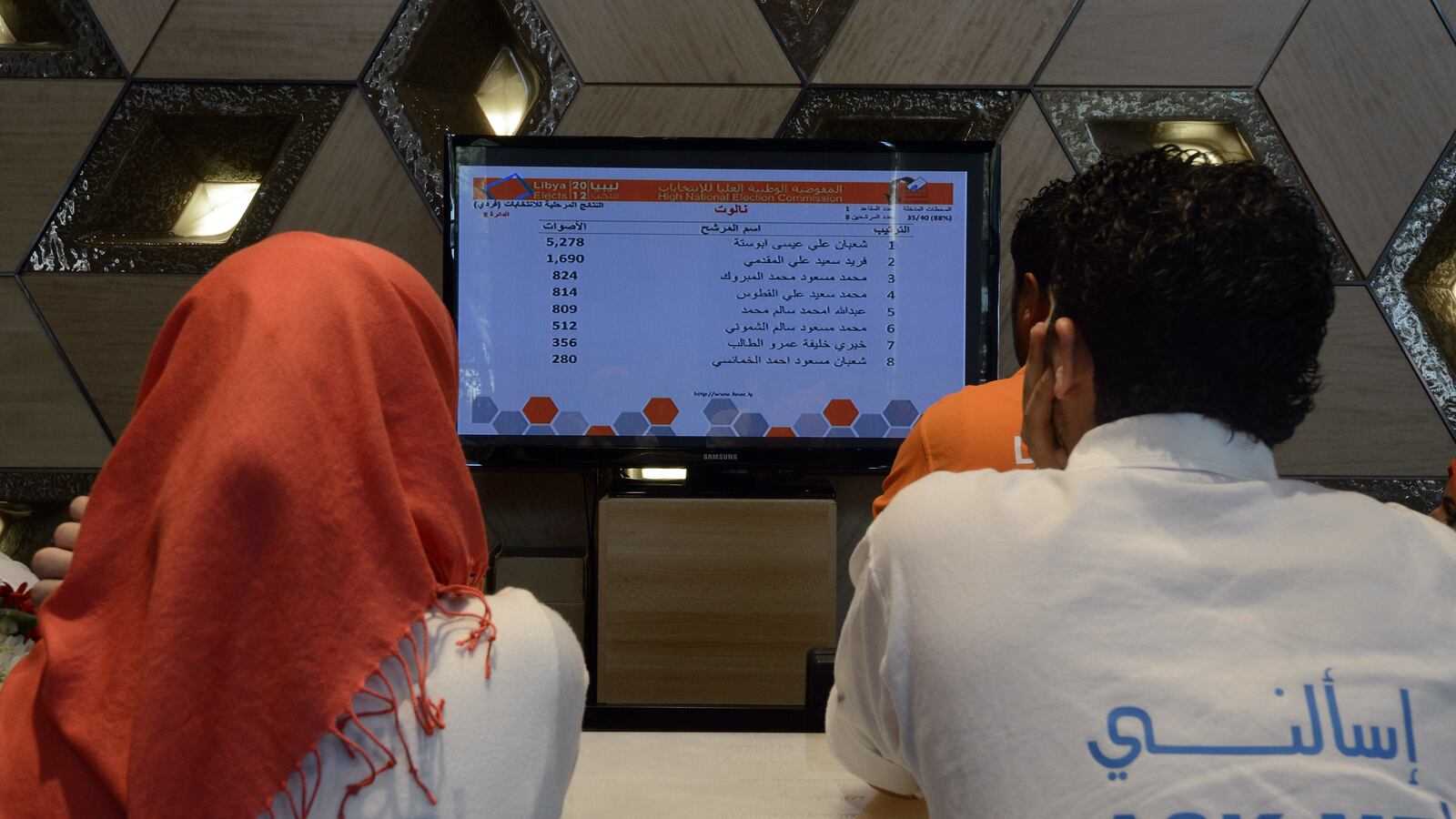Since early last year I have been warning (in The National Interest online and, more recently, in these pages) that the “Arab Spring” most likely will end up as an Arab Winter and that the main result of the year and a half of tumult in the Middle East and North Africa will be not liberalization or lasting democracy but a deepening Islamisation of the politics of the Arab world. And the results of the general elections in Tunisia and Egypt–which may turn out to have been “One man, one vote, one election”–strikingly corroborated my fears.
But last week, a thin, tenuous ray of light cut through the gloom, with the reported tentative victory of the secular liberal parties over the Islamists in the pre-parliamentary elections in Libya. The National Forces Alliance, led by US-educated Mahmoud Jibril, a former prime minister, apparently won most of the 80 seats allotted to party lists, handily beating the Muslim Brotherhood’s Justice and Construction Party. But the composition of the future government remains unclear as 120 of the 200 future legislators have run as “Independents," and their real political leanings will only become apparent after the coalition-making process begins.

Libya is a large country (675,000 sq. miles–four times the size of Montana), wedged between Egypt and Tunisia, with a small population of seven million. But it has disproportionate “weight” because of its rich oil reserves. The country is riven by tribalism, regionalism and a host of armed militias who so far have refused to disarm. But the successful vote, with some two thirds of eligible voters participating, may point to at least a start in the successful transition to democracy, after more than four decades of dictatorship by Muammar Gaddafi, who was toppled by a popular uprising and then executed by an angry mob after months of civil war.
A few weeks ago my wife and I had breakfast in a European capital with a very senior official of the Libyan transitional government, which will soon be replaced by the government set up by Jibril. The official was representative of that class of young Libyans born or brought up in the West to exiled families who had left the country during the difficult Gaddafi years. The youngsters had returned home before or during the revolution and appeared to be manning the second-rung positions in the transitional government. The ministers were old tribal representatives and ex-Gaddafi officials and officers. But their young deputies and ministerial director generals tended to be from this recently-returned, Western-educated stratum.
The breakfast conversation was lively, unexpectedly friendly and open. The official was a practicing Muslim but with a lightness of being and a sense of humor, flecked with flashes of self-criticism–not exactly the attributes you might expect of your average Egyptian or Syrian Muslim Brother. The official endorsed Sharia but appeared willing to accept the popular will regarding its non-imposition, if that was the verdict of the electorate. The official’s openness as well as a captivating naivete were thoroughly North American. The official pooh-poohed the alleged threat to the West and Israel of the Islamist tsunami.
About Israel, the official mouthed the routine litany of grievances–centered around what had happened and what was happening to the Palestinians. But the official also expressed an awareness of Arab fault in the decades-long conflict and appeared to hold out the possibility of an eventual accommodation with the Jewish state. Most of the official’s friends growing up in the Diaspora had been Jewish. The official expressed a willingness, even an eagerness, to visit Israel though agreed that it was early days and the time was not yet ripe.
If, following the July 7th elections, this generation comes to dominate Libyan politics, something important and positive may have happened in the Arab Spring, which may radiate towards the traditional centers of Arab power and demography. But an irradiation in the other direction is, unfortunately, at least as likely, if not more so.






